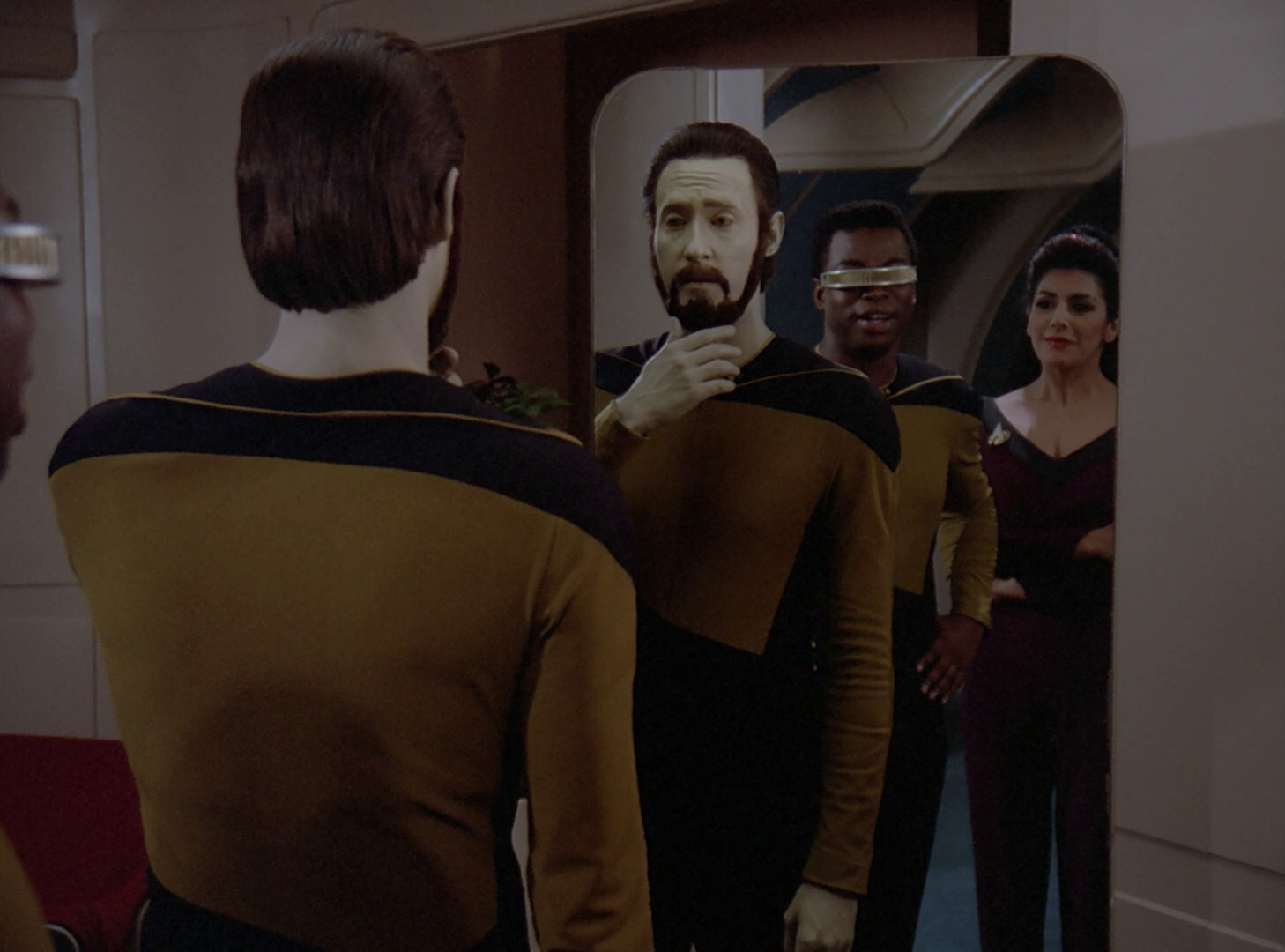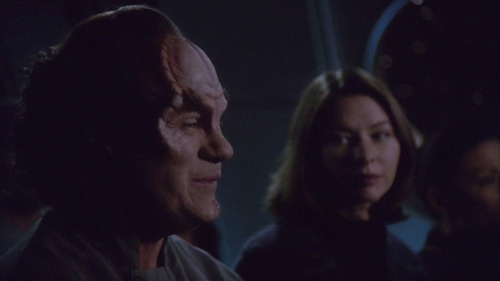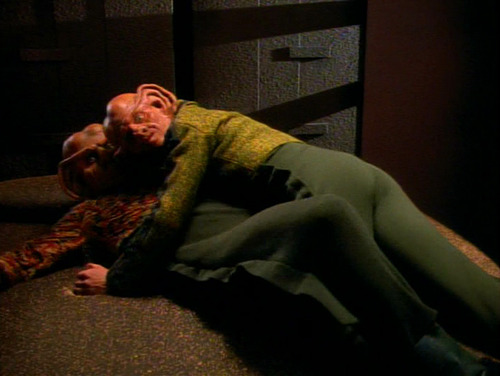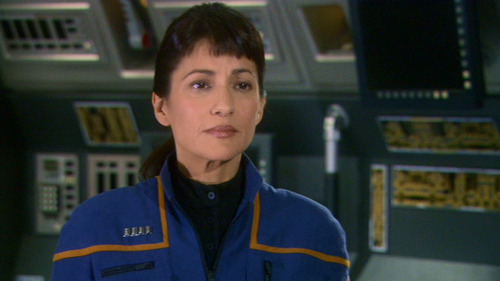“The Schizoid Man” is an early TNG episode about a renowned scientist who decides to transfer his consciousness into Data’s brain in order to extend his life.
It’s also an unintentional #MeToo story in space. Here’s why.
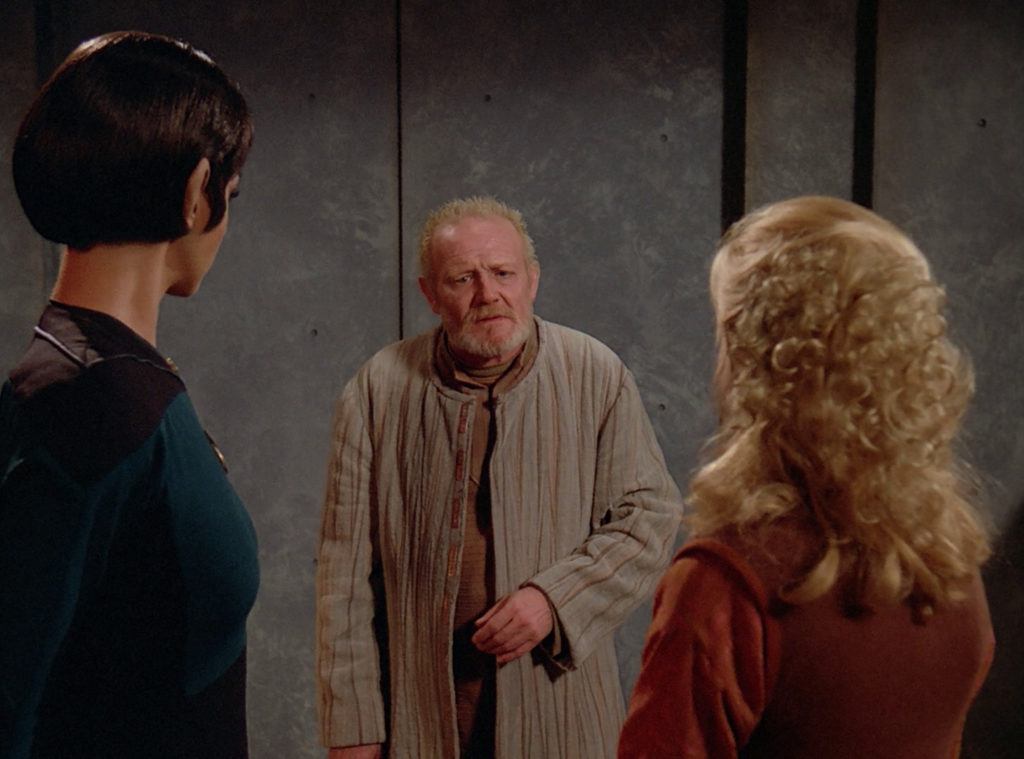
Medical log, Stardate 42437.5. Ira Graves is arguably the greatest human mind in the universe. For years he’s lived in near isolation on a remote planet, devoting full time to his research. Eight hours ago, we monitored a message from his assistant, urgently requesting medical aid. I only hope we can reach him in time.
The Enterprise crew is sent on a mission to look into the health of a renowned scientist, Dr. Ira Graves. This guy is a genius (probably a very stable one) and you can tell because he literally named his planet after himself and no one on the Enterprise comments: “Hmm. That’s a bit much.”
Nope! Instead, Pulaski and Captain Picard seem to agrree this guy is far more valuable than the average human, with Picard instructing the away team to “protect Graves’ health at all costs.”
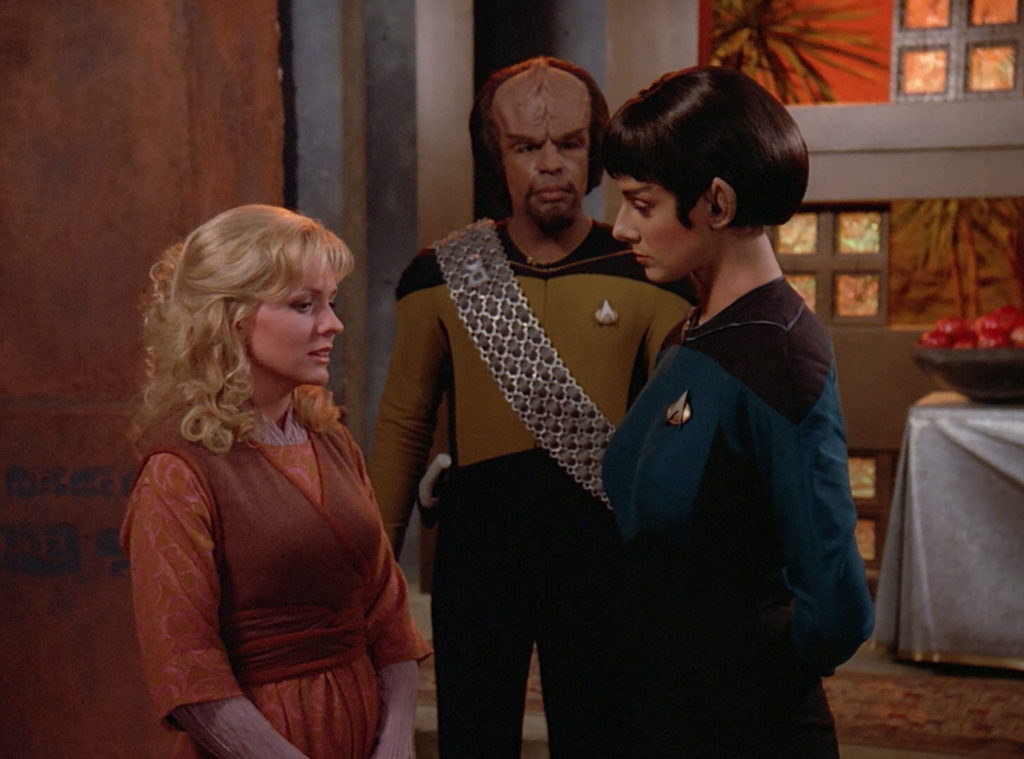
Because of the near-mythic profile he’s established, our heroes permit Graves some pretty gross behaviour.
When the away team (which includes Suzie Plakson as Dr. Selar, the bright light of this episode) arrives on Gravesworld, they meet Dr. Graves and his assistant, Kareen. Kareen is much younger than Graves, having lived alone with him on his planet since her father died when she was very young. There is a very clear power difference between them based on his age and renown, her status as his assistant, and her lack of exposure to other people. However, his attraction to her is treated as romantic.
Troi: His feelings towards you are very warm. He’s attracted to you in many ways.
Kareen: Attracted? I know I’ve felt certain feelings from him…and for him. Had I been older, perhaps we could’ve been…that’s not the way it worked out. And now it’s like he’s afraid to face me.
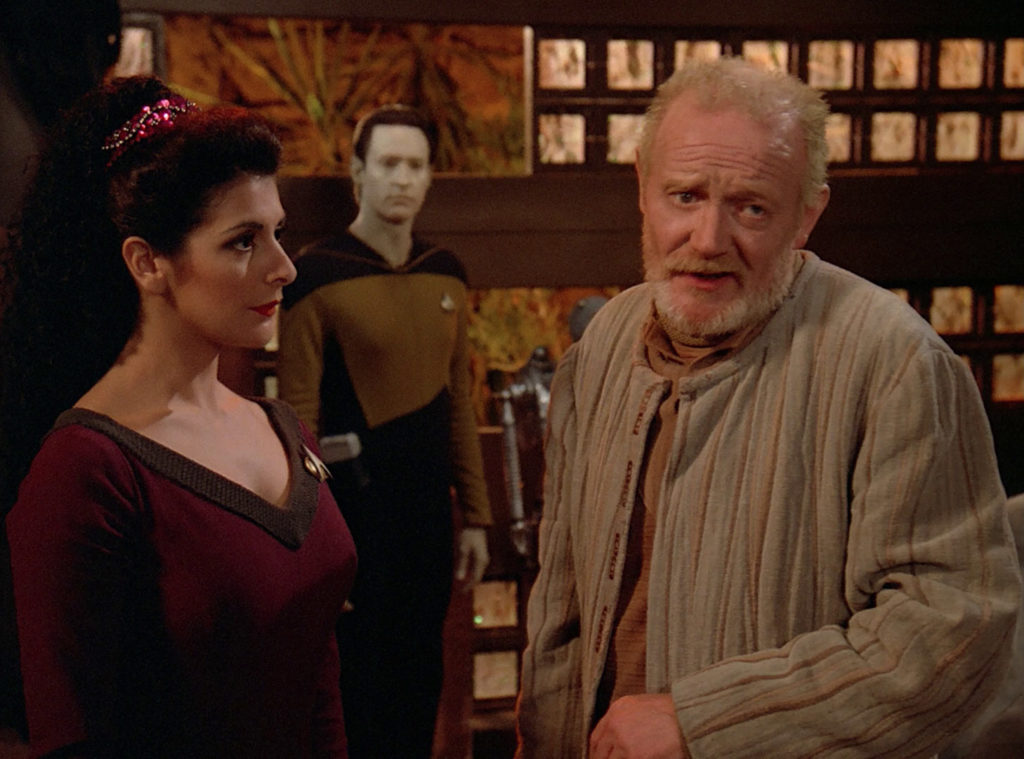
Graves is also less than respectful of Troi and Selar, the two women on the away team.
Graves to Selar: I will admit, for a doctor you’re not a bad looking woman. (to Troi) Well, well, well, what have we got here? Another lovely specimen of womanhood.
Troi: I thought you didn’t like people.
Graves: Women aren’t people. They’re women. (kisses her hand)
Troi: I’m Deanna Troi. It’s an honour to meet you, Doctor Graves.
Graves: Yes, of course it is. This is one of the truly great moments of your life.
Next week on Star Trek: The Next Generation: our crew goes back in time to save genius director Woody Allen!
It shouldn’t be surprising that a man with such incredible ego, who has never been given any reason to doubt he is better than others, and who dehumanizes women should feel justified in dehumanizing a sentient machine in order to further his own needs.
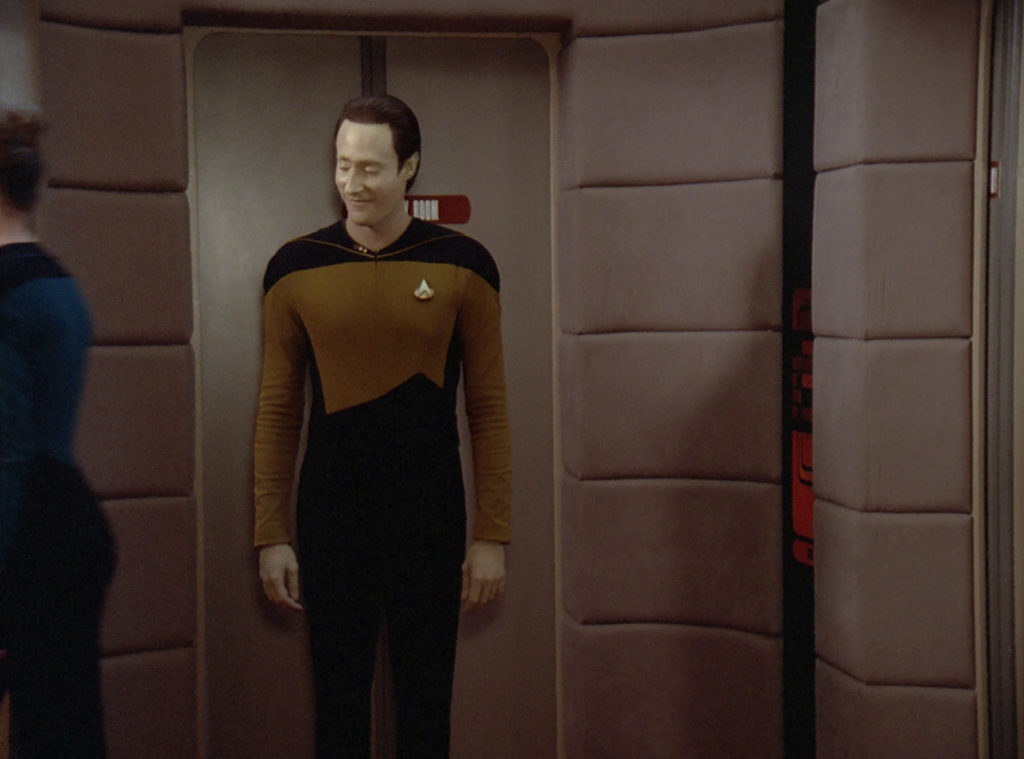
In Data’s body, Graves ogles women and behaves very unlike Data. It seems to take quite a while for the crew to get really suspicious but when they do finally understand that the situation is out of hand, Troi and Selar have a great exchange with Picard.
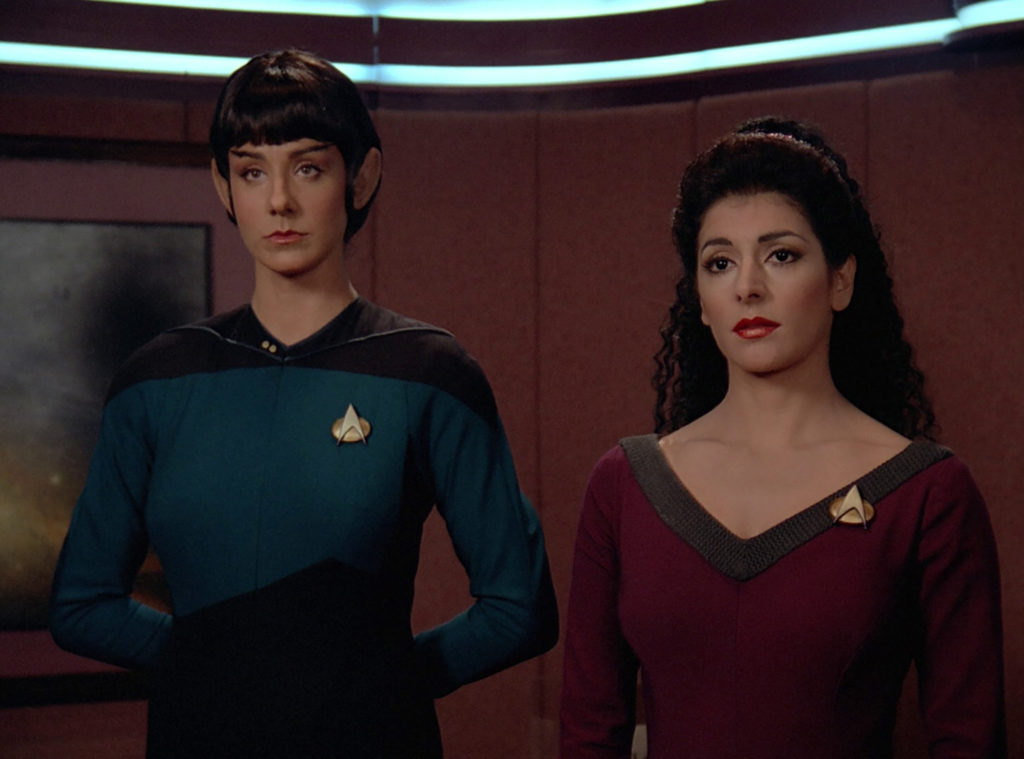
Picard: Doctor, what was your impression of Graves?
Selar: He seemed brilliant, egocentric, arrogant, chauvinistic.
Picard: Sound familiar?
Yes! Not just to the Enterprise crew trying to figure out why Data’s acting oddly, but also to all of us who have witnessed or experienced sexual harassment or assault but who have been ignored or silenced because of the perpetrator’s power and profile.
After a time Graves/Data also presents himself to Kareen, assuming she’ll naturally want to live with him forever now that he’s in a younger-looking body.
Data: Think of the things I will accomplish over the next thousand years! What? Oh, I know what you’re thinking. There is no need to worry. I will create an android body for you, too. We can witness the end of time together. Why are you crying, Kareen? I can love you now. The way I always wanted to. It was not right before. I was too old for you, too weak. Now I can be everything you want me to be.
Kareen: I won’t let you put me in a machine. I want to live my life. I won’t let you take it away from me. Ira! Ira, you’re hurting me!
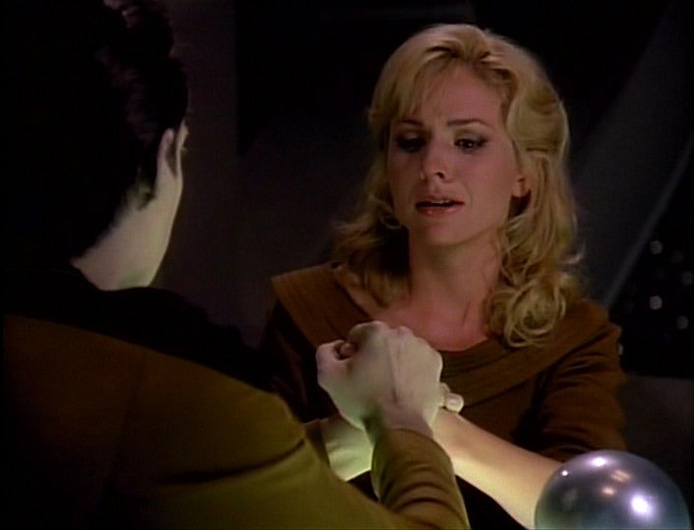
Graves injures Kareen’s hand, then goes to Engineering and knocks La Forge unconscious. But it isn’t until he slaps Picard, hurting a white man that is closer to him in status, that he realizes he’s gone too far and decides to leave Data’s body.
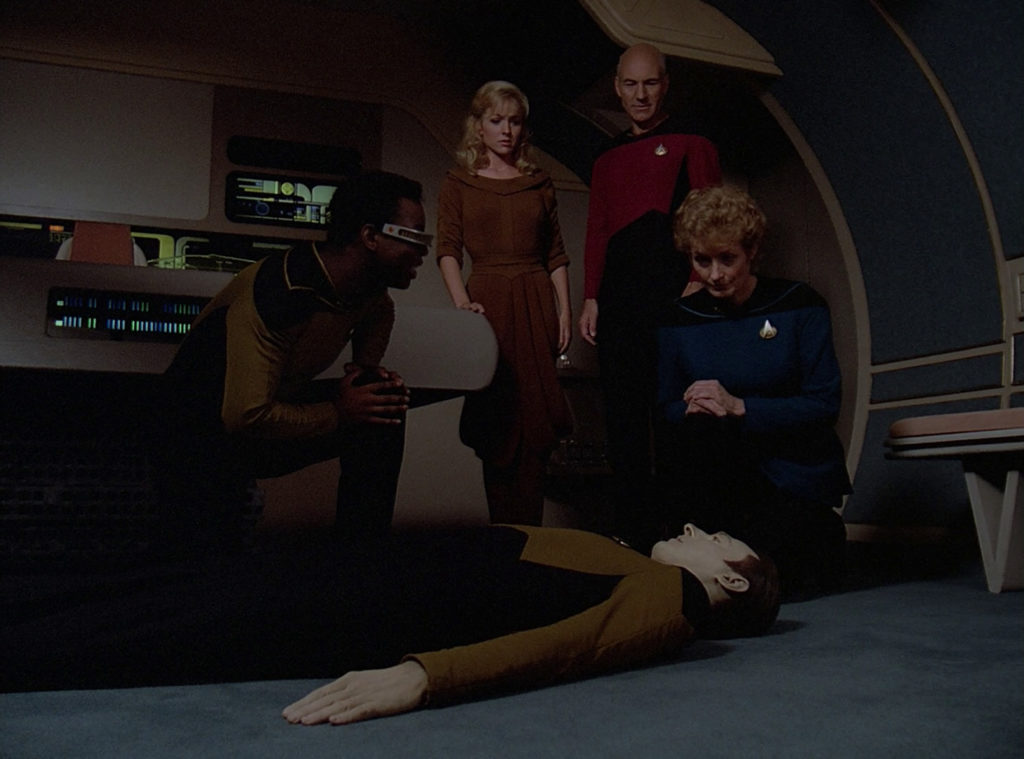
Even after all that, there’s a sense that we’re supposed to be relieved that Graves transferred his intellect into the Enterprise computer.
It’s hard to imagine this episode being made today, and that’s a good thing. It’s hard to watch women in Star Trek have to suck up harassment and romanticize the lechery of a high-profile older man towards a young woman with so much less power than he has.
But we can at least use this episode to add to the discussion, to point out the parallels between Graves and the real-life high-profile men whose behaviours have been ignored or excused. The real-life men with power, whether that be power in a workplace or classroom, in politics or medicine or media.
As Sophie Gilbert writes at The Atlantic:
For a long time, most women defined their own sexual harassment and assault in this way: as something unspoken, something private, something to be ashamed of acknowledging. Silence, although understandable, has its cost. A decade ago, I couldn’t have conceived of the fact that so many women had experienced sexual coercion or intimidation; now, I’d be surprised if I could find a single one who hadn’t.
What were the systemic issues that facilitated Graves’ takeover of Data’s body and subsequent violent behaviour? How might Troi and Selar have reacted differently to Graves in those first scenes on the planet? How might Worf and Data have acted better as allies?
Maybe mulling over these kinds of questions is another way to better understand our current world and how to change it.
Bechdel-Wallace Test: Pass (barely) – Troi and Kareen talk about a distress call. During all other interactions between named female characters they are talking about Graves.







